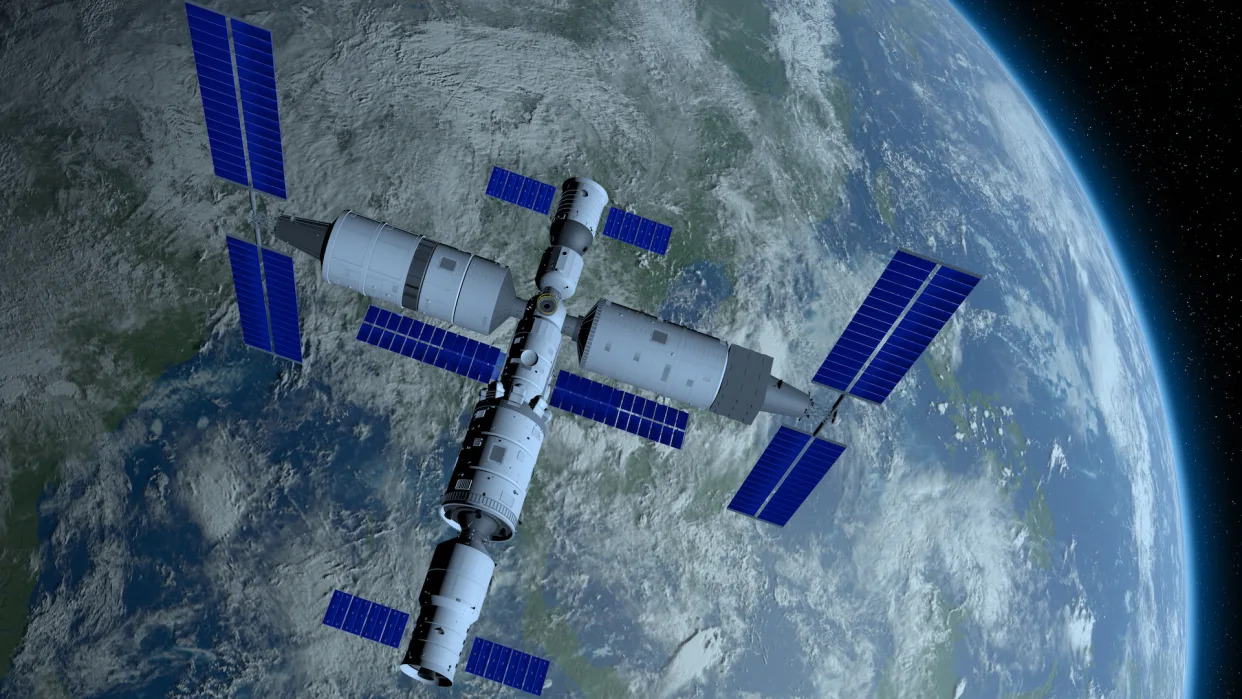Andrew Jones
Fri, September 1, 2023

3D illustration of Tiangong, the Chinese space station, orbiting Earth, with Earth in the background.
An Australian company has released images showing how China constructed its Tiangong space station.
HEO Robotics specializes in non-Earth imaging, meaning using space-based sensors to acquire images of objects of interest in orbit such as satellites. The firm released images demonstrating some of these capabilities on Aug. 30, showing step-by-step moves made by China to complete its three-module Tiangong space station.
"Using our non-Earth imaging capability, we witnessed a story unfold over an 18-month timeframe. Each stage you see was verified with a photo taken from another satellite in space," the company posted on X, formerly known as Twitter.
Related: See latest configuration of China's Tiangong space station in stunning new video
The short video shows the space station's Tianhe core module first being visited by Tianzhou cargo vessels and crewed Shenzhou spacecraft, before two experiment modules, Wentian and Mengtian, are added to the complex and transpositioned to form a "T-shape" and receiving new visitors.
Related Stories:
— China launches 3 astronauts to Tiangong space station on Shenzhou 16 spacecraft (video)
— China's space program: Latest news and photos
— China's Shenzhou 15 capsule lands safely with 3 Tiangong space station astronauts (video)
HEO Robotics says its services help "defense, governments and commercial operators visually monitor space objects with our in-orbit flyby inspection technology," according to the company's webpages. The Sydney-based startup recently saw its Holmes Imager reach orbit as a hosted payload aboard Turion's Droid-1, and raised $12 million AUD in investment to expand its software platform.
Tiangong is currently inhabited by the three-person Shenzhou 17 crew. China aims to keep the orbital outpost occupied for at least a decade and potentially utilize the station for commercial purposes.
No comments:
Post a Comment